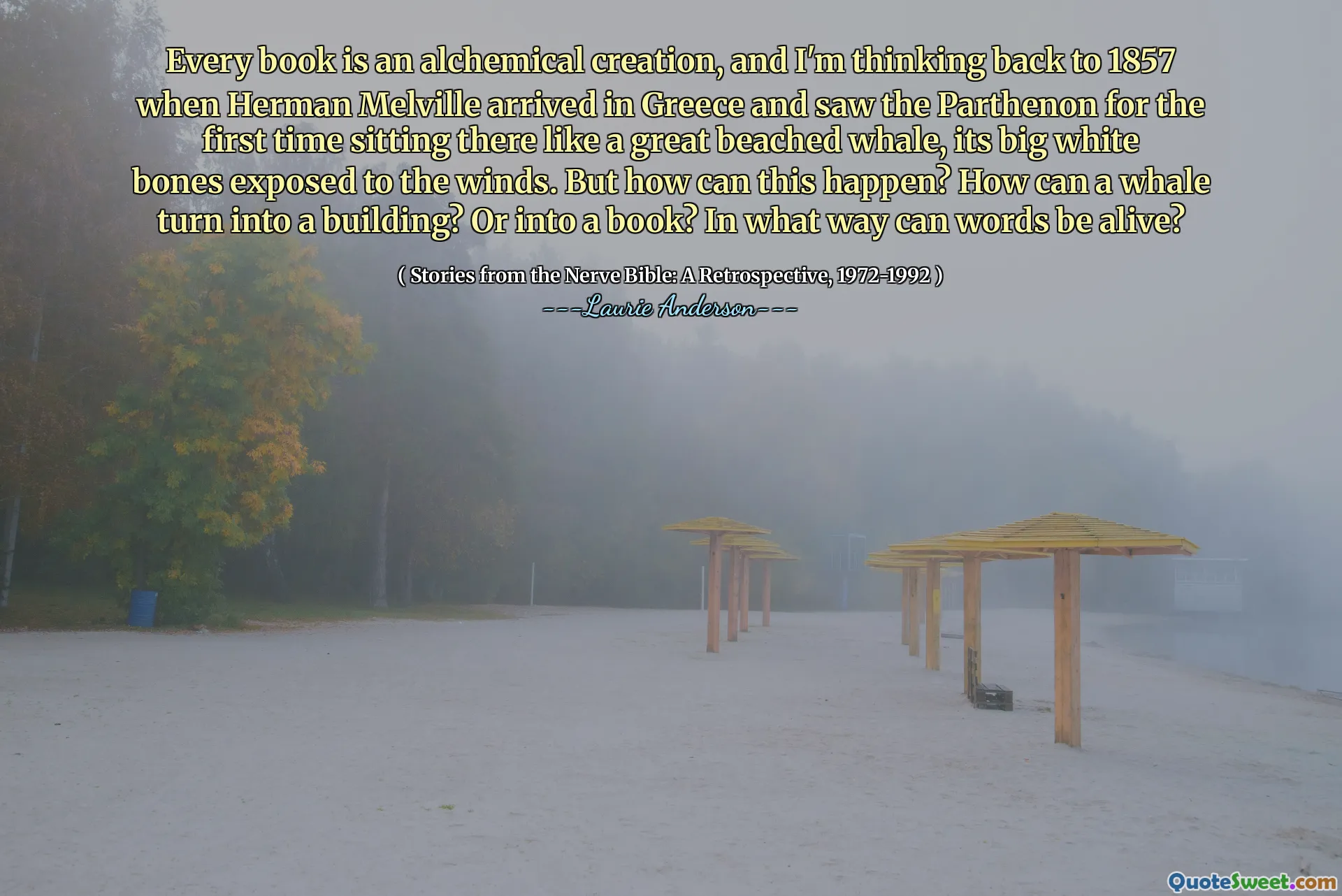
Every book is an alchemical creation, and I'm thinking back to 1857 when Herman Melville arrived in Greece and saw the Parthenon for the first time sitting there like a great beached whale, its big white bones exposed to the winds. But how can this happen? How can a whale turn into a building? Or into a book? In what way can words be alive?
In her reflective work "Stories from the Nerve Bible: A Retrospective, 1972-1992," Laurie Anderson evokes the transformative power of creativity through an intriguing metaphor. She recounts Herman Melville's first encounter with the Parthenon, likening its majestic appearance to that of a beached whale, suggesting a sense of wonder and metamorphosis. This comparison leads to deeper philosophical questions about the nature of art and creation, exploring how forms can change and evolve.
Anderson's contemplation poses profound inquiries about the essence of existence, asking how an organic entity like a whale can become an architectural marvel or a narrative. This imagery challenges readers to consider the vitality of words and stories, suggesting that they, too, possess a living quality that can bring forth new meanings and experiences. Overall, the passage reflects on the alchemical process of art, where diverse elements combine to create something entirely new and impactful.






